Last Updated on April 13, 2025 by Admin
Google Keyword Planner is a free tool that helps you find the right words to use online. It tells you how often people search for specific terms, how those numbers change over time, and what it might cost to use those terms in ads.
Although it’s mainly for planning paid ads, it’s also really useful for improving how your website shows up in free search results.
In this article, we will guide you on setting it up and using it for paid ads and improving your site’s visibility. Let’s begin!
How to set up Google Keyword Planner?
Google Keyword Planner is free to use. All you need is a Google Ads account to use it. To set one up, go to ads.google.com, click “Start now,” and sign in to your Google account.
Then click the small blue “Create an account without a campaign” link.

On the next page, input your billing country, time zone, and currency. Choose “No” when asked if you want personalized campaign advice from a Google Ads expert over the phone, then click “Submit.”
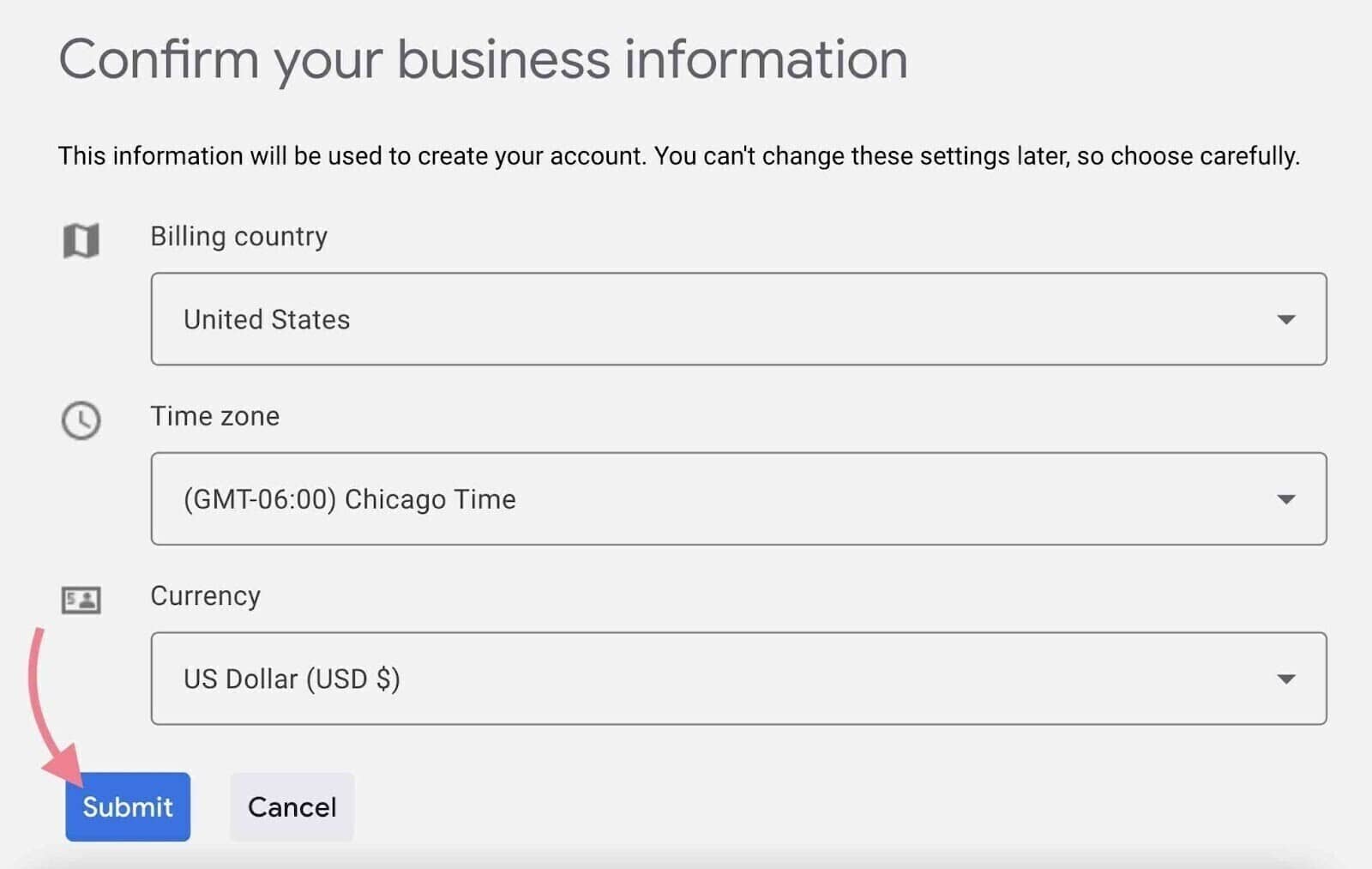
Once you reach the confirmation page, click “Explore your account.”
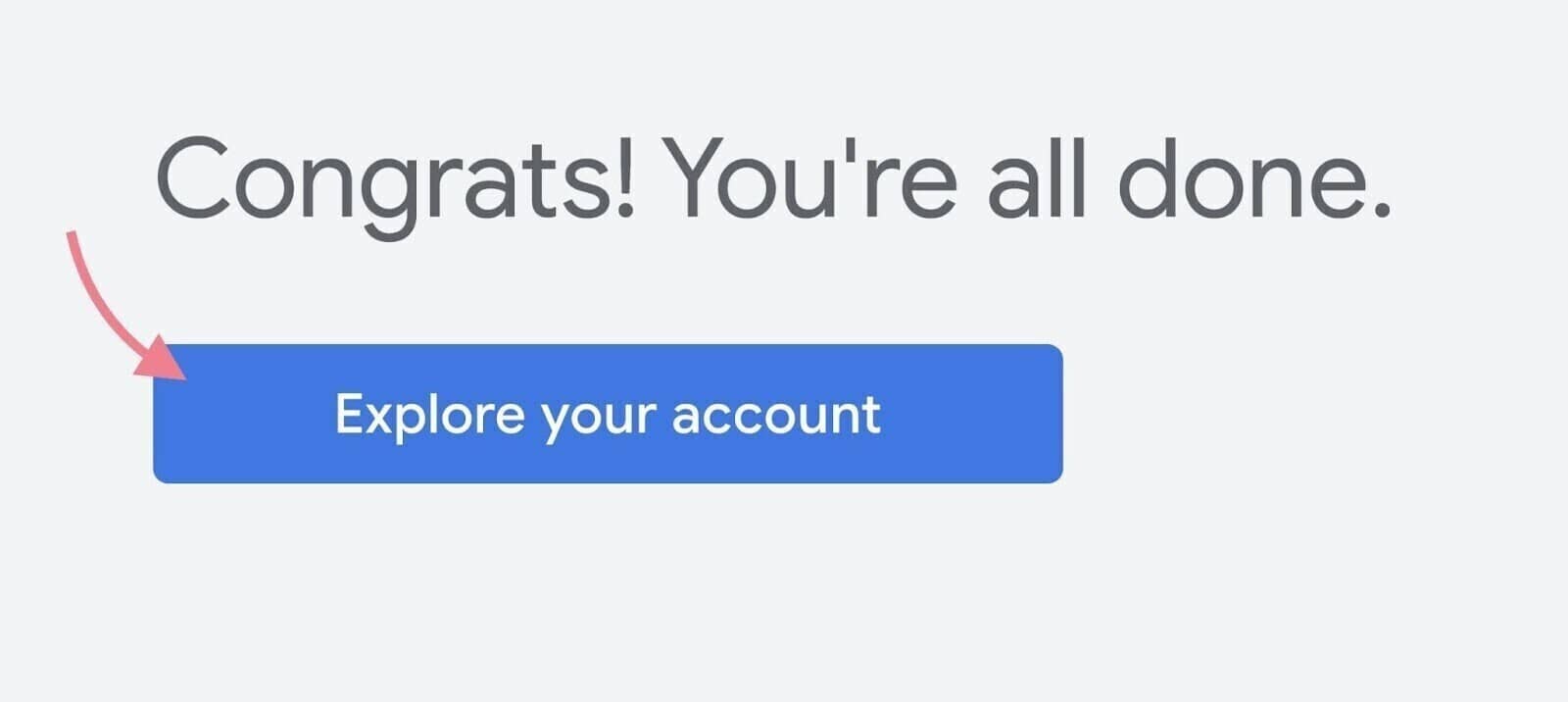
Your Google Ads account is now fully set up.
Go to the menu bar, click on “Tools and settings,” and under the “Planning” section, choose “Keyword Planner.”
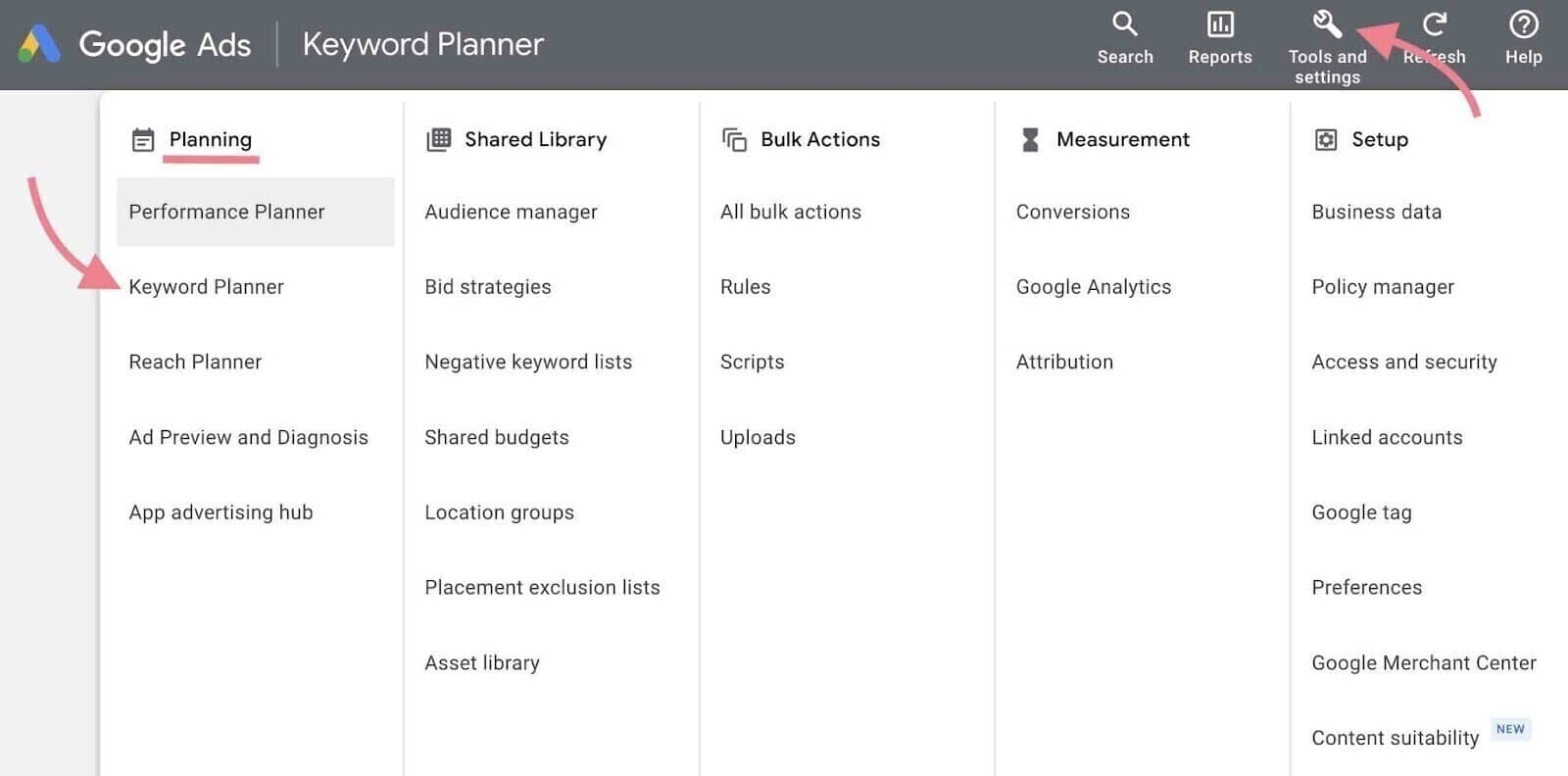
Here, you will find the keywords.
How Can You Use Google Keyword Planner?
There are two main tools inside the Google Keyword Planner.
- ‘Discover new keywords’ to find keyword ideas.
- ‘Get search volume and forecasts’ to see search volumes and metrics for an existing list of keywords.
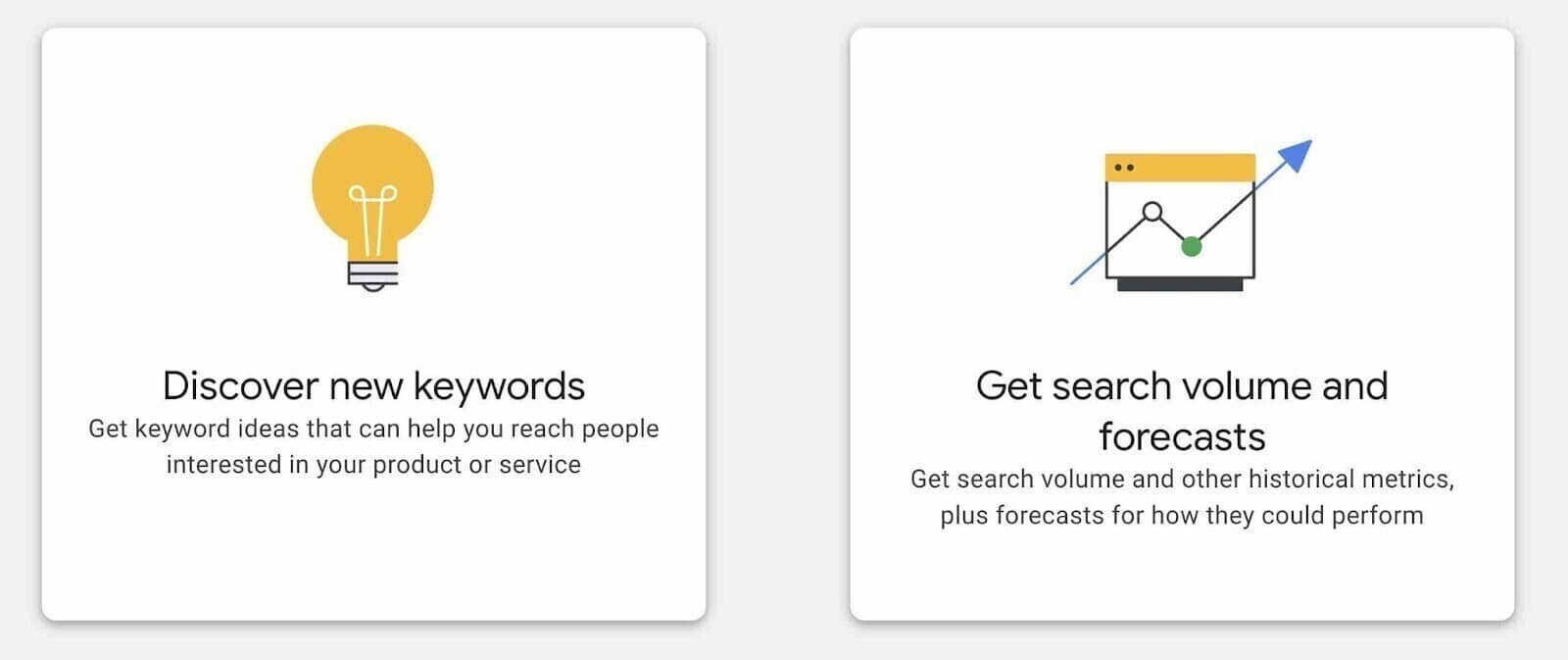
Let’s discuss each of them in detail.
Discover New Ideas
You can discover new keywords in two ways:
- Start with keywords: Enter up to 10 phrases or words related to your business.
- Start with a website: Enter a URL and see keyword suggestions based on that page.
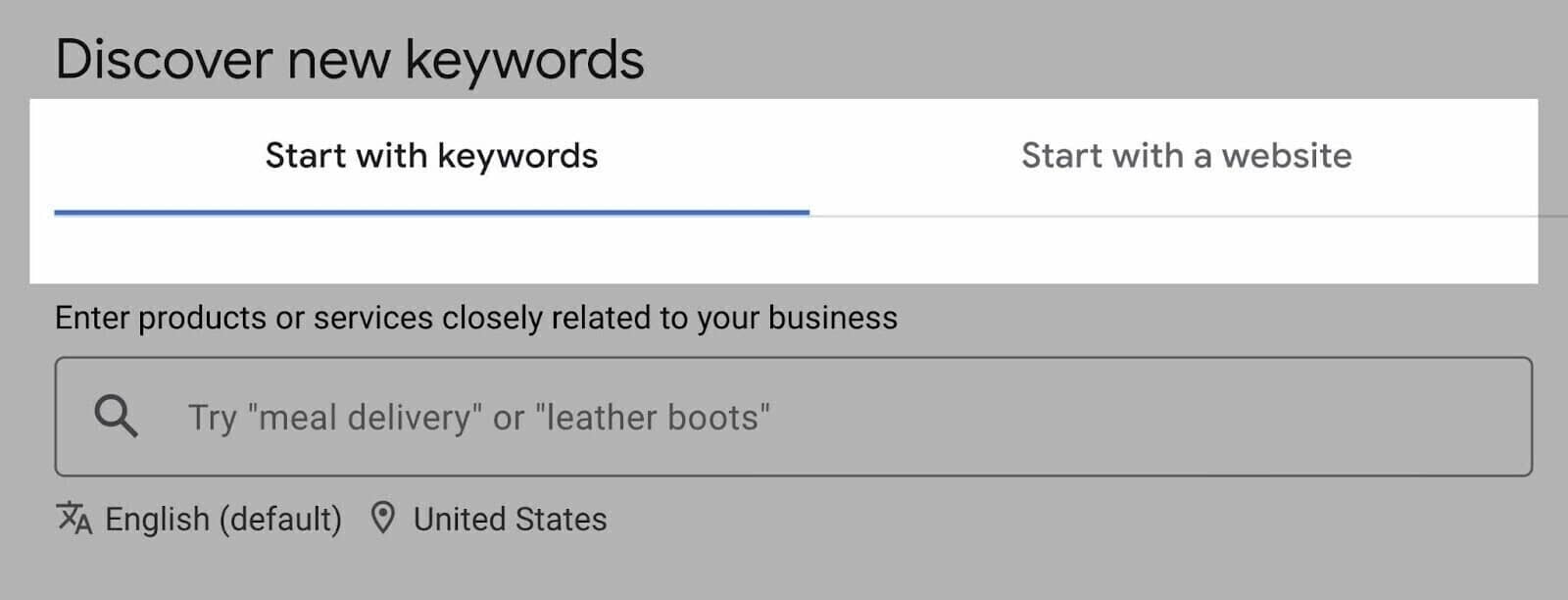
Start with keywords
If you already have a keyword or a few keywords in mind and need more related suggestions, here’s what to do:
Type a keyword like “local SEO” into the search bar, then click “Get results.” You will get plenty of ideas related to ‘’local SEO.’’
Along with information about their average monthly searches, highest and lowest bid amounts, and more.
Start with website
You can also get keyword suggestions by using a website’s or page’s URL. Google will search for keywords that match the site’s content or page.
To start, type in the URL, choose whether to analyze the whole site or just a specific page, and then click “Get results.”
Get Search Volume and Forecasts
This method is for you if you already have some keywords and want to check how often they’re searched and other details. Here’s how to do it:
- Type your keywords into the search box. You can paste them all at once, put one per line, or separate them with commas.
- Click “Get started.”
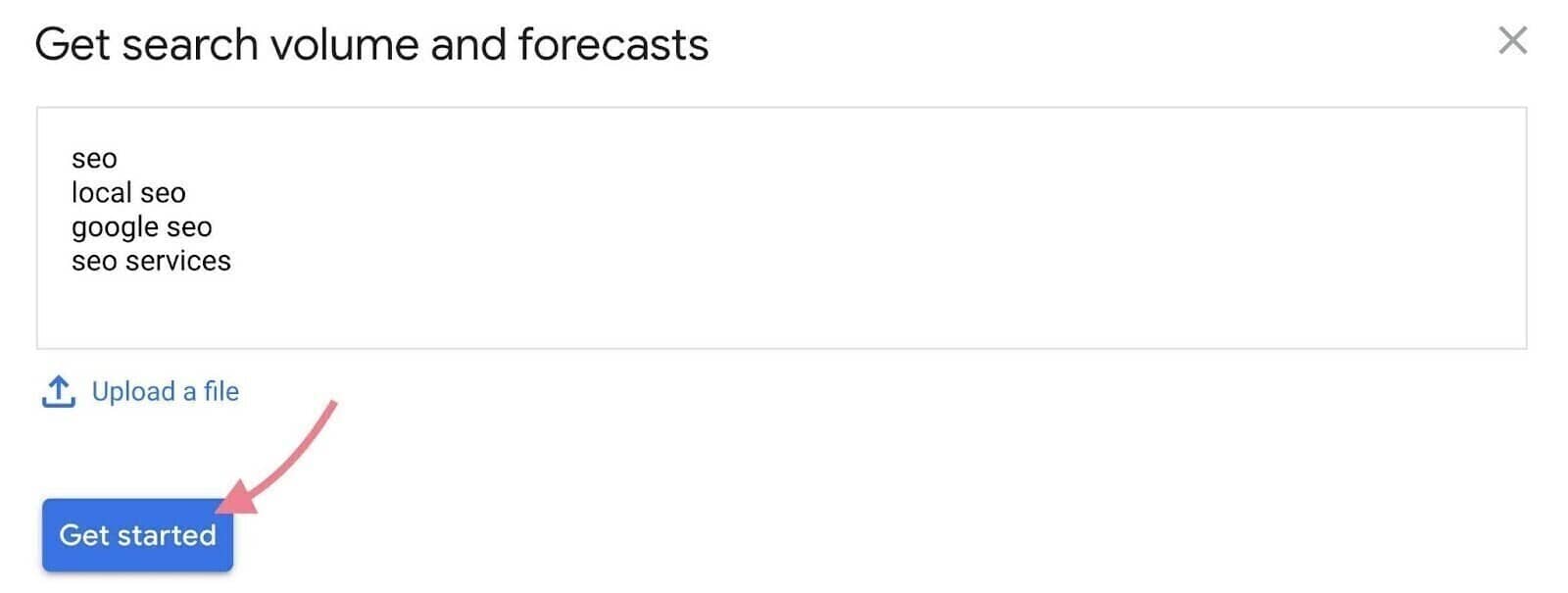
You’ll see a page showing data for the keywords you entered, just like the page you see when you search for new keywords, but without any new suggestions.
If you want to see predictions for how many clicks and views these keywords might get in future ads, click “Forecast” on the left side.
This shows you the expected clicks, views, costs, click-through rates, and average click per click per keyword. This information is really helpful if you’re planning to run ads.
How to Find the Best Keyword Ideas?
It’s not useful to try to rank for keywords that don’t relate to what you’re offering. So, the first step is eliminating keywords that aren’t a good fit.
For instance, if you’re searching for keywords for T-shirts for an online clothing store and you type “tshirt” into the search, you’ll see many keywords connected to specific brands.
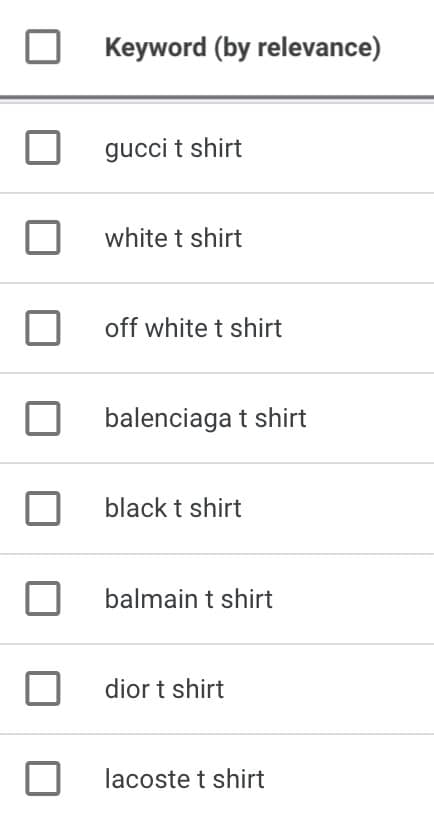
This works well if you sell T-shirts from those brands. If not, these keywords are just a distraction.
Fortunately, Keyword Planner lets you easily sort through these suggestions. Simply click “Refine keywords” in the upper right to quickly filter keywords by attributes like brand, color, and style.
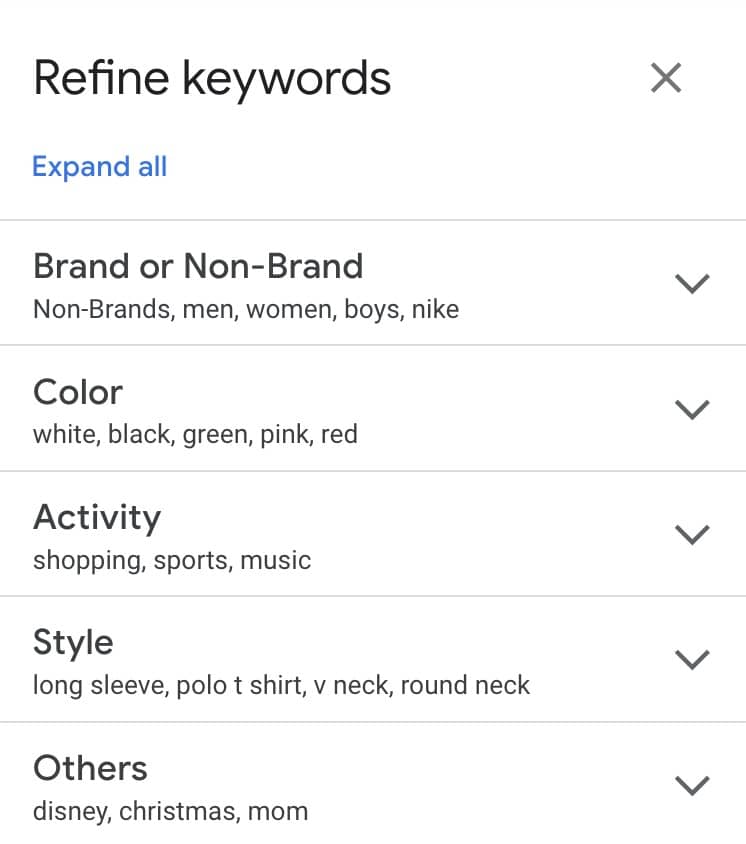
If you’re still seeing many irrelevant keywords, you can use the “does not contain” filter to exclude them.
After that, it’s all about sifting through the list to find the keywords that are relevant to you.
Here are a few tips and methods to help you do this:
1. Search low-competition long-tails: Long-tail keywords are phrases that don’t get searched as much each month, which usually makes them easier to rank for compared to more common keywords.
While Keyword Planner doesn’t give the exact number of searches for each keyword, it does show a range for the average monthly searches. You can find long-tail keywords by sorting these ideas by average monthly searches from the lowest to the highest.
2. Search trending keywords: Keyword Planner includes a Year-over-Year (YoY) change metric, which compares the search trends of the most recent month to the same month last year.
You can sort the keyword ideas by this metric from highest to lowest to spot emerging topics.
3. Search seasonal keywords: It features a “three-month change” metric that tracks how search trends have shifted from the most recent month compared to the two previous months.
You can sort the keyword ideas by this metric to spot seasonal trends, from the highest to the lowest changes.
4. Search lucrative keywords: Keyword Planner includes a column called “top of page bid (high range).” This shows the higher amount that advertisers have typically paid to have their ads appear at the top of the page for a specific keyword.
While this information doesn’t directly relate to SEO, it’s reasonable to think that if advertisers are willing to pay a lot for a keyword, it likely has significant commercial value. Therefore, it could be beneficial to try to rank organically for these keywords.
Wrapping Up!
Using Google Keyword Planner in 2024 is a great way to help marketers understand what people are searching for. This tool can guide you in creating better ads and improving your website’s search engine ranking. If you’re looking to really boost your online success, consider working with an SEO service agency like AlgoSaga. They specialize in these tools and can help you get the most out of your online efforts.
